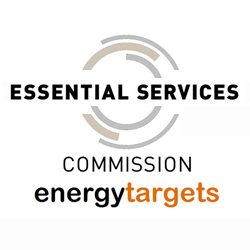Essential Services Commission Victoria
The Essential Services Commission is committed to pursuing best practice in its consultation and decision making. The core objective of the commission is to ensure all Victorians benefit from affordable, reliable and quality essential services. To achieve this goal, Victoria’s essential services regulator has to perform a wide range of functions, which can be summarised as:
• To regulate the gas, electricity, water, sewerage, ports and rail freight sector through a consistent approach.
• To administer licensing of essential service providers as well as monitor compliance of regulatory codes and guidelines.
• To facilitate full retail competition amongst industry players by implementing the Competition and Consumer Act of 2010 and the Fair Trading Act of 1999.
• To investigate and review the conduct and operation of regulated industries in order to establish whether compliance is being met or violations have been made.
• To administer the Victorian Energy Efficiency Target Scheme
• To make information regarding essential services readily available to the public and industry stakeholders.
• Work together with other regulatory bodies in order to contribute to integrated outcomes.
Vision
The Essential Service Commission of Victoria aims to protect the long-term interests of Victoria’s community with respect to price, quality, and reliability of essential services. The commission strives to execute its mandate as set out in the ESC Act of 2001. It also makes a concerted effort to create fair competition amongst regulated entities. Through its inclusive culture, the Essential Services Commission hopes to be the cornerstone that facilitates economic stability in Victoria.
Differentiation
• It works in harmony with other regulators to avoid duplication and to achieve more integrated decisions and outcomes.
• The commission’s consultative and transparent processes have garnered it the trust of consumers.
• It gives due diligence to health, safety, environmental and social obligations in its decision making.
Philosophy
The core goals of the Commission include delivering quality decisions and advice; demonstrate leadership; encourage and display integrity and impartiality; and operate through a transparent and inclusive process.
To meet these objectives, the commission believes in making concerted efforts to improve the decision making process by being:
• Open and transparent to the public and industry players through updates and regular publications on Victoria’s ESC website
• Independent and impartial in its decisions and processes while at the same time adhering to its mandate.
• Accessible to all relevant entities to promote an inclusive culture and provide opportunities for all stakeholders to be heard
• Efficient at minimizing the cost regulatory activities
• Effective at identifying issues of high priority and solving issues that need to be addressed
Sustainability
As the energy, rail transport, water and sewerage regulator of Victoria, the Essential Services commission is required to promote economic development in the mentioned sectors. It does this though its stable regulatory framework. In essence, this facilitates infrastructure investment and long-term viability of companies that provide essential services while at the same time ensuring that consumers receive decent services at reasonable prices.
The commission is required to come up with development plans, industry standards and guidelines that are in line with national economic interests. In order to meet this objective, the Essential Services Commission of Victoria uses an annual work plan. Agendas undertaken in each plan are part of a concerted effort to identify which areas need prioritizing. ESC consults various experts, stakeholders and consumers themselves before making decisions on how to execute its regulatory functions or what codes and ethical guidelines to enforce in various industries.
Legal provisions in the ESC Act 2001 and other laws that govern the powers of the Victoria Essential Services Commission also play a big role in maintaining positive progress. Although these laws may be subject to further amendments, the regulations revolve around making the regulator’s office effective in its mandate.
Address
- Street: Level 37 / 2 Lonsdale Street
- Postcode: 3000
- City: Melbourne
- State: Victoria
- Country: Australia
Contact
- Telephone: +61 3 9032 1300 or 1300 664 969
- Sales: +61 3 9032 1300 or 1300 664 969
- Fax: +61 3 9032 1303
